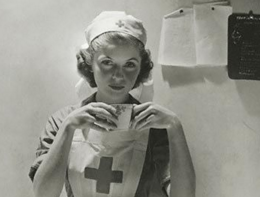Much like the subject of American History, Sex Education in school is one sided and misleading. But unlike the subject of American History, which is typically course corrected to some degree when we get our higher education, our understanding of birth control is never broadened or corrected. At least not until much, much later.
As someone who went to high school in the 90’s, in Vista, a town in Southern California, I wholeheartedly support teaching sex education, even if somewhat one-sided. There were two groups of girls in my high school – well, more than two, but for the sake of this argument, I’ll group us in two camps: those with babies (and there were a shocking number of girls with babies), and those without babies. Those of us without babies were petrified of getting knocked-up – not just in High School, but well into college and beyond. We were taught, after all, that having sex without protection will most definitely lead to pregnancy. With hormones raging, and a significant population of high school teens having babies at that time, I can appreciate the one sided education that suggests that getting pregnant is incredibly easy when bodily fluids are exchanged.
The problem with this over-simplified, one sided education is that it’s rarely course corrected, at least not until it’s quite late.
I went through college, then all of my twenties and early thirties trying not to get knocked-up. I can’t even count how many ‘scares’ I thought I had. Now, I’m not suggesting that it wouldn’t have been easier to get pregnant in my 20’s. It probably would have – at the perfect time, assuming my vaginal acids didn’t kill 99% of all viable sperm (oh yes, that happens), and that the 1% of sperm that did make the journey collided and made its way into an egg strong enough to actually implant (which of course, can only happen once per month, during a very short period of time).
What I didn’t realize, and what so many women don’t, is that there is a lot more to getting pregnant than just egg meets sperm. Our eggs aren’t just hanging out, waiting for Mr. Right to come along. They show up one a month, for a very limited appearance.
Our eggs aren’t just hanging out, waiting for Mr. Right to come along. They show up once a month, for a very limited appearance.
But on a serious note, what’s worse than our inadequate education on the reproductive system and process is how little we know about our own reproductive health. If you don’t have a healthy reproductive system, you really wouldn’t know about it until you’re actually trying to get pregnant, because your annual GYN only consists of a typical pap.
. . .what’s worse than our inadequate education on the reproductive system and process is how little we know about our own reproductive health.
I’m not suggesting we teach teen girls that getting pregnant is hard work, and that they have to do it sooner rather than later (we absolutely should not do that), but I am suggesting that at some point – probably in our mid to late 20’s, our doctors should have a conversation with us about the realities of fertility. Single and not interested, or married and trying, whatever our mindset about babies at any given time, we should know the truth about our fertility sooner rather than later.
For example, when we turn 40, our doctors highly recommend that we get a mammogram. Now I realize this isn’t exactly the same thing, but now that there are options to help preserve our fertility, why can’t doctors recommend that have an ovarian reserve testing at a certain age – say 28? Of course these tests aren’t perfect, but they do start to give us a sense of our reproductive prowess (or lack there of).
It’s time for us to provide a more comprehensive education and to start talking about how to provide young women access to the science and technology available to us.
Image Source: https://storify.com/michelleg22/us-public-high-school-sex-education





